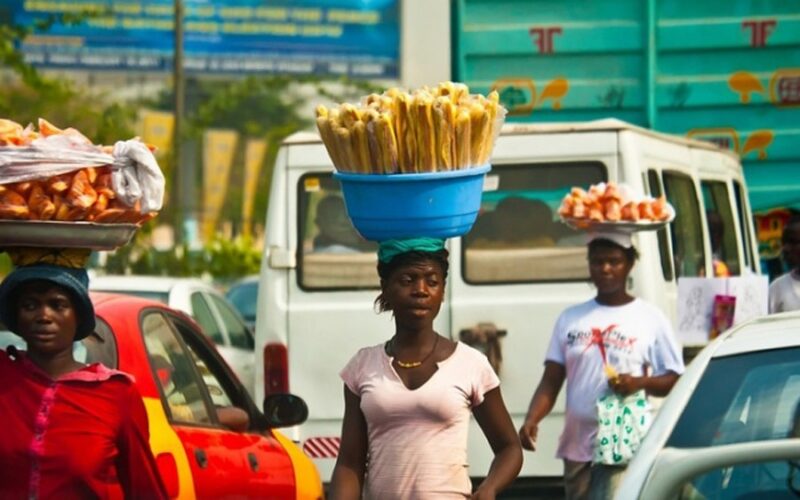National Issues
Child Labour: An Urgent Social Challenge -By Suleiman Ahmed
Consequently, engaging a child in labor has significant repercussions on both the child and the society. Most often, children’s health is at risk resulting in poor nutrition, exposure to the deceased, inability to grow among others. Some of the children engage in harmful work, and get exposed to toxic and harmful substances. Children working to quarry gravel and granite are at physical risk, such as injury or death from exposure to dust, falling rocks, and carrying heavy loads. Children also work breaking granite into gravel at various sites. some of the children working in mining and quarries are force to do.

Child labor refers to the engagement of children in any work that deprives them of their childhood, potential, and dignity, and that is harmful to their physical and mental development. It entails work that is mentally, physically, socially or morally dangerous and harmful to children and denies them opportunities for education and development. Most families engage children in Agricultural work like harvesting of crops, rearing animals, working at construction sites, mining, and some domestic jobs which expose them to physical danger and health issues. most children after been exposed to laboring from Early age, the pressure of the work usually results to emotional and psychological stress, which in turn, results to feeling of despair, low self esteem and traumatic experiences
In Nigeria, the National Bureau of Statistics’ (NBS) and Multiple Indicator Cluster Survey (MICS) in 2017 reported that 50% of Nigerian children, aged between five and 17, are involved in child labour. In most urban areas, many children are used as domestic servants, others, especially in rural areas, are seen roaming around the street, picking bottles and metal to assist families financially. The Bureau of International Labour Affairs (BILA) in 2019 stated that Many lower class children and orphans in Nigeria are engaging in the worst forms of labour in broad daylight. Children are subjected to labour such as quarrying granite and gravel, both boys and girls engage in street-hawking, sometimes dropping out of school to work. Increasing numbers of children also engage in begging mostly, in tthe northern part of the country, and commercial sexual exploitation in the eastern part of the country.
The increasing rate at which children are used for labour is alarming, it needs urgent intervention and the government needs to take this issue of child labor seriously and ensure children are given the freedom they need at a young age.
One of the major causes of child labor in Nigeria is poverty. The inability of most family heads to provide food and shelter for the family’s members often results in the deployment of children to engage in agriculture work for quantity production. Most polygamous families find it hard to attend to the needs of all the family members as such employ the children to engage in hawking on the street, engage in mining, etc. Some families went as far as urging the children to go out and do whatever they can in order to provide for the family. This usually results in some of the children engaging in crime and hazardous work which are harmful to the society and the child itself.
Similarly, lack of access to education is also one of the primary reasons for child labor. The inability of children to have access to quality education pushes them to engage in labor. Most families find child labor as an alternative to schooling since they find it difficult to avoid the cost of school expenses such as school fees, text book, school uniform etc. In some societies, schools are far from them. Hence, they tend to trekk for a longer period before reaching the school. while some schools are of low quality.
Additionally, in some societies, laws prohibiting child labor are not properly enforced, which have led to weak legal framework, which in turn give room to business men and other people to explore the use of children without paying attention to the law. Most employers hire children because they believe they can pay them lower wages than adults. Also, In some cultures, it is acceptable for children to work alongside adults. This has contributed greatly to the increased rate of child labor in recent times.
Consequently, engaging a child in labor has significant repercussions on both the child and the society. Most often, children’s health is at risk resulting in poor nutrition, exposure to the deceased, inability to grow among others. Some of the children engage in harmful work, and get exposed to toxic and harmful substances. Children working to quarry gravel and granite are at physical risk, such as injury or death from exposure to dust, falling rocks, and carrying heavy loads. Children also work breaking granite into gravel at various sites. some of the children working in mining and quarries are force to do.
Similarly, child labor deprived children of the opportunity of obtaining an education at a crucial age. Children who do labor tend to miss out of class and eventually drop out entirely, depriving them of the opportunity for a better future in return leaving psychological scars that may never heal and may prevent them from functioning in society as they mature. Working as labourers could also render children years without family life and may suffer pain from work-related injuries.
In conclusion, in order to reduce the rate at which children are used in ln labor. The government must enforce the existing child laws and develop policies aimed at protecting children’s rights. The ability of the government to combat poverty will also play a significant role in reducing the rate of child labor. They should establish social protection programs like giving out grants and loans, engaging parents in vocational training among others. Opinion leaders such as traditional rulers, pastors, Imams, local leaders and organizations should create awareness campaigns to educate the communities about the negative impact of child’s labour. Lastly, the government should collaborate with Non governmental organizations (NGOs) by providing support services, educating communities, And advocating for policy change, in order to address this social menace and securing a brighter future for the children.










